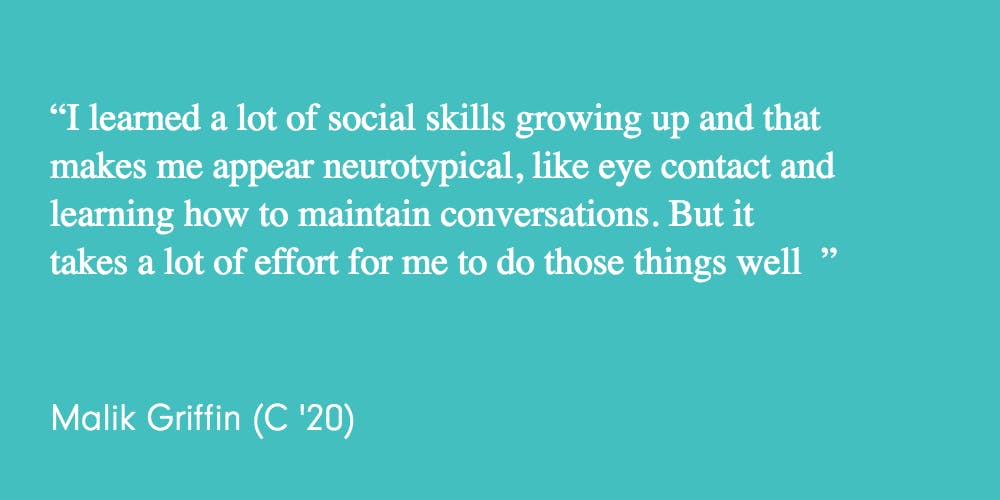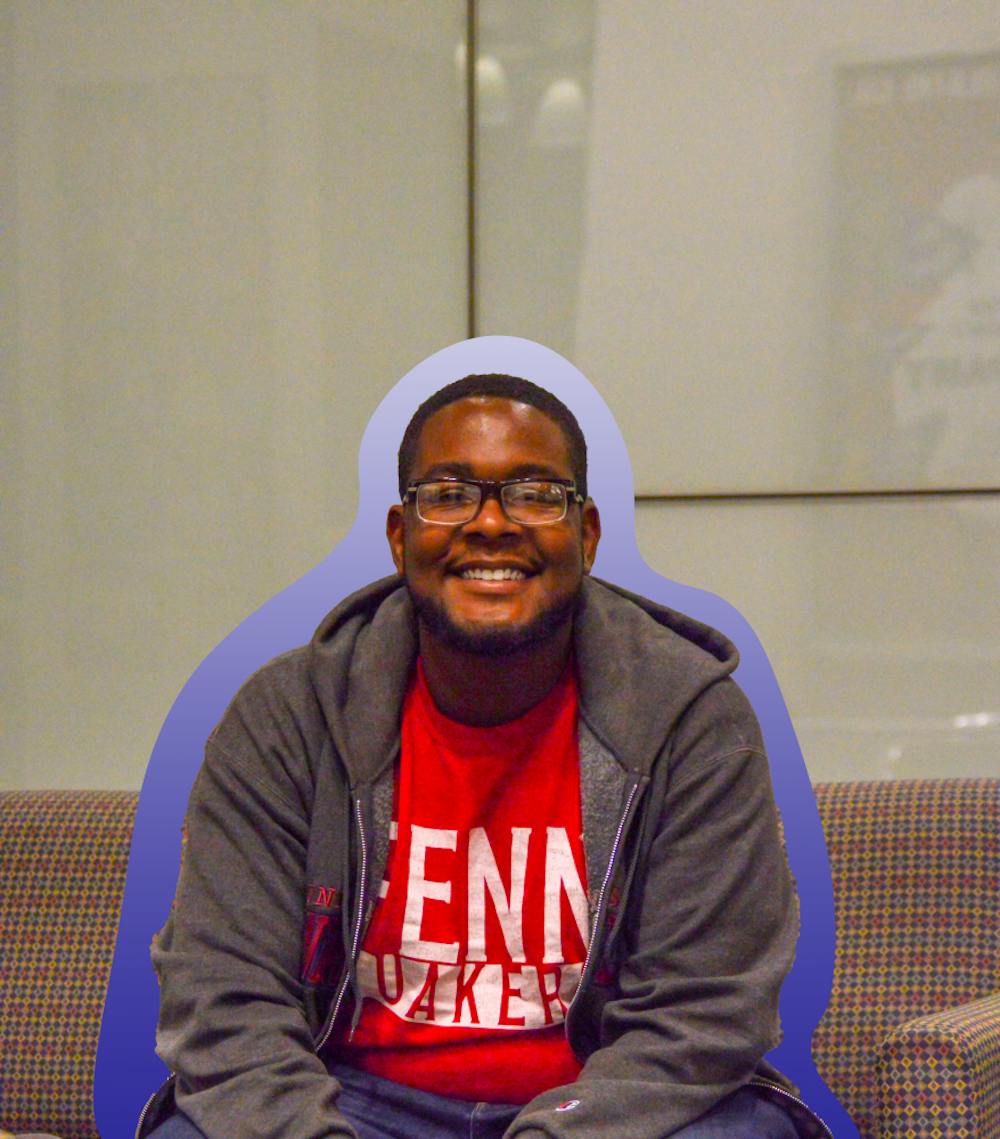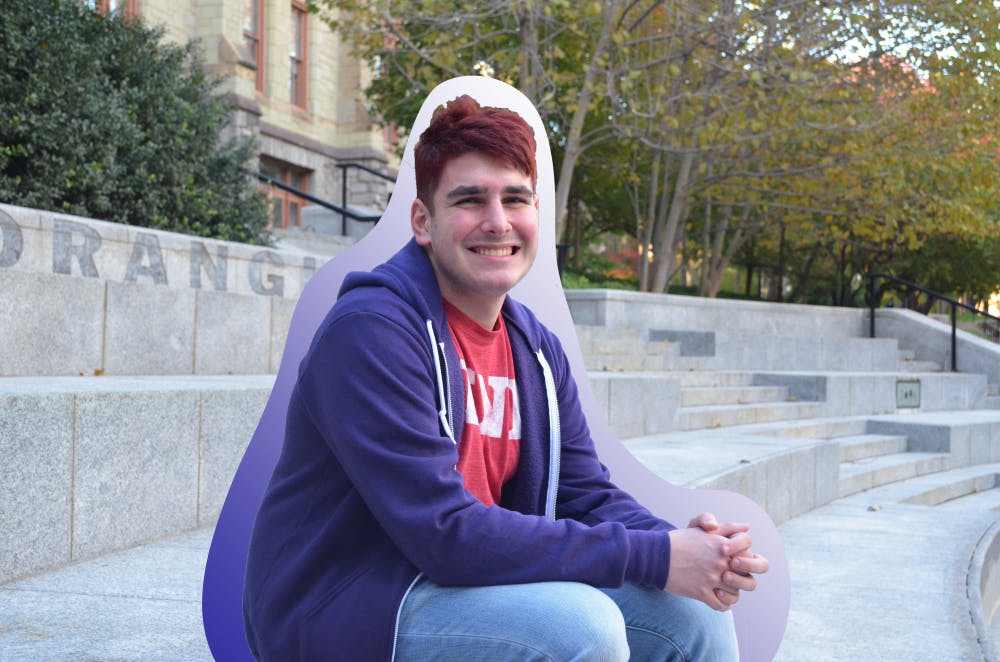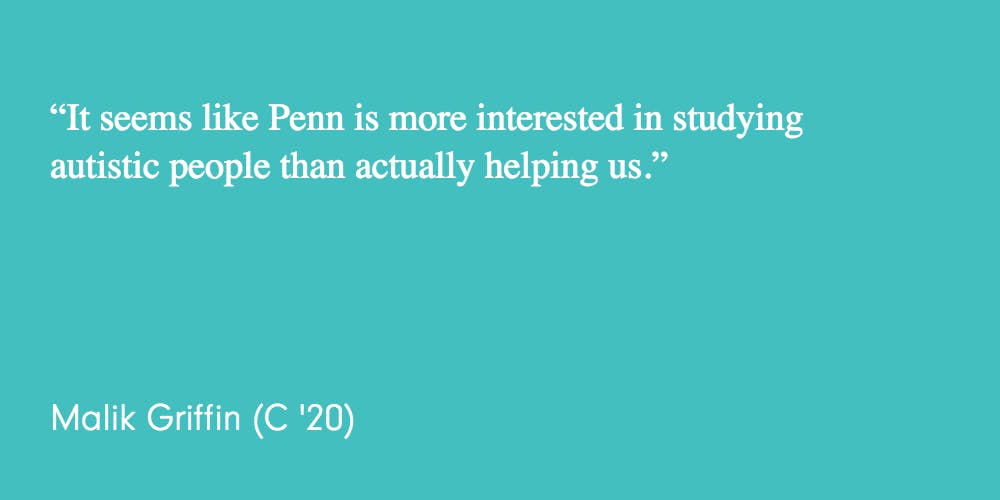Penn’s indifference to its autistic students was apparent before I even applied.
I was at a college fair and wanted to know what life would be like at the university. My high school certainly didn’t welcome autistic students, and I wanted to be accepted at last. My impression, though, was that Penn saw autism in admissions in a legal light—not as something to necessarily celebrate. Rather than learn about Penn’s resources for disabled students, I received assurance that my diagnosis would not affect my chances of admission. I was crushed. Nevertheless, Penn was my dream school, and I applied early decision. Upon getting accepted, I was ecstatic.
But I felt misunderstood the moment I walked on Penn’s campus. I was a part of the Pre–Freshman Program, which is designed to help potentially vulnerable students adjust to college. Students asked me, in tones ranging from well–intentioned curiosity to suspicion, why I, a white woman with college educated parents, would be there. I understood their confusion. But it was still hurtful and invalidating. My autism wasn’t obvious, but that didn’t mean I wasn’t struggling. I’m far from alone. One study found that over 75% of autistic students reported “feeling left out or isolated.” Another found that fewer than 20% of autistic students were on the path to completing college five years after graduating high school. According to NPR, “those on the spectrum were more than five times more likely to have a psychiatric diagnosis than typically developing individuals.”
Autism spectrum disorder is defined by the National Institute for Neurological Disorder and Stroke as “complex neurodevelopment disorders characterized by repetitive and characteristic patterns of behavior and difficulties with social communication and interaction.” Some common autism traits include difficulty making eye contact, feeling easily overwhelmed, and difficulty reading social cues.

I find it difficult to express my needs. For instance, how do I explain to someone that their eating in class is incredibly distracting? I’m always self–conscious of students and professors thinking I’m lazy, when really, things just take more energy out of me than out of neurotypicals, or those who do not have neurological differences.
When the average Penn student laments about the woes of social interaction, networking, and “Penn Face,” I think: “You cannot be serious.” As an autistic person, it frustrates me that they don’t see how much easier they have it. But it’s comforting to know my struggles are shared by others, something that Aidan Mayer Ahearn (C ’22), a Penn student with autism, agrees with.
“[It] shows that being someone who is neurotypical doesn't mean that every single thing that is related to socializing or the equivalent is a walk in the park,” Aidan says. “Yet at the same time...I don't think people, even my best friends at Penn, realize that everything they do with regards to socializing, I have to work three times as hard to get the same result because I was not naturally born a social butterfly. It was something I had to grow and evolve into.”
Malik Griffin (C ’20), who is also autistic, says Penn, “definitely [has] had its ups and downs.” He notes that having exams in a different room or changing the setup of the classroom for an exam can cause him to lose focus completely. Penn is also sensory overload; from the intense flyering on Locust to Penn’s constant construction projects, it’s hard to find a sensory neutral space.
“Typically when I walk, I walk with my headphones [on]. The sounds have always bothered me,” Malik says.
Daniella Cass (C ’19), a student with autism previously profiled in Street, sometimes gets annoyed by political protesters and canvassers. “One time I actually pulled out my phone and held up my phone to my ear and kept walking.” She notes that through her years at Penn she has gotten better coping with sensory overload.
Aidan admits, “midterms were definitely a learning period,” as he never had midterms in high school. “Now I know what to do for next time,” he says, crediting Weingarten Learning Resources Center, which provides academic support services at Penn.
Daniel Bergmann, an autistic alumnus who attended Penn in 2014 and 2015, currently attends Harvard Extension School. Daniel communicates by spelling, a form of nonverbal communication. He types out his thoughts on an iPad, with the help of various people in his life. Looking back on his Penn experience, he writes that Penn’s Student Disability Services, which provided him with spelling accommodations, provided inconsistent assistance. His dad, Michael, says there was “a radical change from one semester to another,” regarding his accommodations.
Besides individual struggles, the lack of autism awareness at Penn is frustrating. Most media depictions portray autistic people like Sheldon from The Big Bang Theory, or Christopher in Mark Haddon’s novel The Curious Incident of the Dog in the Night–Time. “They’re always like smart in one thing, you know, socially awkward or obnoxious,” says Daniella. Stereotypes like this are not representative of how diverse autistic people are.

Malik Griffin (C ’20)
“I wish they knew that autistic people can be different than we are often depicted,” Malik says. “I learned a lot of social skills growing up and that makes me appear neurotypical, like eye contact and learning how to maintain conversations. But it takes a lot of effort for me to do those things well.”
That same sentiment motivated Daniella to write about having autism in her Common Application essay. “It has been a climb. I started out nonverbal. And it really has been, like, crawling every step of the way, in my internal development,” she says.
Daniella has lived in single dorms during her time at Penn. “I didn’t want to have any roommates. Sometimes, I talk out loud when I’m studying, and things like that, and I wouldn’t want to bother any people.”
Most autistic students need a single to recharge, but Student Disability Services makes it difficult to get accommodation for a single room with a kitchen and bathroom. I applied for a housing accommodation last semester for a single apartment, but I was rejected. New College House and New College House West only have suite–style dorms—everyone does get their own room, but there are shared kitchens and bathrooms in Harrison, Harnwell, Rodin, and Stouffer–Mayer. Student Disability Services did not respond to an interview request for this article.
Compounding the more ingrained issues surrounding housing on campus, Penn doesn’t have any programs specifically to help autistic students. There are also no on–campus neurodiversity communities. Penn, and most other elite universities, are not known for being sought–after by autistic students. In fact, no Ivy League universities made lists of best colleges for autistic students. The universities listed typically had a specific program to meet autistic students’ academic and social needs. Syracuse University, rated #1 on College Choice’s Best Schools for Students with Autism, has a Disability Cultural Center that “coordinates campuswide social, educational, and cultural activities on disability issues for students, faculty, staff, and community members with and without disabilities.” Other universities on the list have specific programs for autistic students that help with academics, organizational skills, and time management.
The only undergraduate group related to autism is Penn Speaks for Autism, an organization that does outreach advocacy in West Philadelphia, which includes social events for autistic people, and the YouToo tennis program, where Penn students provide tennis lessons to autistic children. Co–president Rose Campbell (N ’19) admits there aren’t any self–identifying autistic members on its board. “I’m not going to force an individual to join my club,” she says.
Rose expressed interest in collaborating with autistic Penn students to create programming for them, and the group is also considering changing its name to clarify that it is not associated with Autism Speaks, a loathed organization in the autistic community, mainly for how the organization applies the “disease model” to autism. The organization is also often seen as helping despairing and intolerant parents of autistic children to “cure” their children of autism.
Penn Speaks for Autism is also forgoing the “puzzle piece” imagery, which is contested by the autistic community for implying autistic people are incomplete and confusing. This is a major departure from how it operated in 2014, when they defended their name and using the imagery after being by criticized for not listening to autistic voices.
One area where Penn is not lacking is autism research. Most notably, there’s the Center for Autism Research, a collaborative research effort between the Children’s Hospital of Philadelphia and Penn. The homepage on its website features a child not making eye contact. He holds a sign that says, “1 in 59.”

Aidan Mayer Ahearn (C ’22)
There’s also the Penn Autism Network, which aims “to identify, develop and disseminate resources to promote successful adaptation and inclusion in the community; and to serve as a catalyst for positive programmatic and systemic changes,” though this is not targeted at Penn students. Penn is by no means unique; all the other Ivies also have lots of autism research, but no support specifically for their autistic students. For instance, Harvard has proudly profiled its researchers that found, using mice, that autism is more than just “a disorder of the brain.” At the same time, a Harvard student with Asperger’s felt compelled to write about being on the spectrum with an op–ed called “Autism With a Human Face.”
Daniel writes that Penn’s focus on research is “missing the boat.”
“Much research is about early diagnosis and genetics. How does that help me? And the emphasis on clinical trials depresses the individualist in me,” Daniel explains.
Malik echoes that sentiment, saying, “it seems like Penn is more interested in studying autistic people than actually helping us.”
In a guest column published in The DP in 2014, Xeno Washburne (C ’16) and Amber Blaylock (C ’15), two autistic Penn students, criticized Penn’s treatment of neurodiversity. They attacked Penn’s association with Autism Speaks, Penn courses about autism that used stigmatizing language, Penn Speaks for Autism, and Dr. David Mandell, a prominent autism researcher at Penn.
Mandell is the director of Penn’s Center for Mental Health and Policy and Services Research, and an associate director of the Center for Autism Research. He is criticized in the guest column for Autism Speaks funding his research. The news release for that research states: “Lifetime Costs for Autism Spectrum Disorder May Reach $2.4 Million Per Patient, Penn Study Finds.” Such a claim, according to them, implied that “autism is an expensive, undesirable condition, and research cures are cost–saving measures.”
He also has taught a course titled, “Implications of the Autism Epidemic,” which he admits was “a bit of bait and switch,” and he didn’t believe there was an autism epidemic. Most of the students enrolled in the course were studying the biological sciences or nursing, and none of them openly identified as autistic. “My hope is that, by the end of the course, people left with a very different understanding of what it means to have autism,” he says.
His knowledge and passion for autism research and advocacy were clear. He was also upfront in critiquing Autism Speaks, despite receiving funding from them in the past. However, his usage of sensationalist language was at best counterproductive, and damaging at worst. When I mentioned the course to Aidan, he replied that the title, “promotes intolerance, bigotry, and telling people they need to ostracize autistic individuals and bully and belittle them as if they aren't good enough or loved by other people.”
Autism research is necessary and valuable. But it has had, at best, an uneasy relationship with the autistic community. Historically, it has focused on the neurological causes of autism, and not how to help or engage the community.
“A big part of it is how research is represented, although I think there are problems [in] the research too,” says Dr. Chloe Silverman, director of Drexel’s Center for Science, Technology & Society. “Certainly, there’s a standard medical journalism narrative, that can be, I think, pretty toxic. Especially the like, the “cause of X found” story template that gets reproduced over and over again, as if that is the only interesting thing to be understood about autism.”

Penn can look to Drexel’s Autism Support Program for establishing a program for autistic students. Founded in 2008 by Drexel psychologist Dr. Felicia Hurewitz, DASP, as it is colloquially called, provides anyone who identifies as being on the autistic spectrum with help succeeding academically. “It’s kind of to fill in the gaps, so no one is falling between the cracks, because it happens a lot in universities,” says Dr. Amy Edwards, who has been the program’s director since September 2017. More recently, DASP has added more social events to help create a community, though more social events for autistic students occur in NeuroDragons, a group dedicated to raising awareness and acceptance for neurodiversity.
Dr. Edwards’s advice to Penn: “If you have students who are self–identifying, talk to them specifically and see where their needs are, see what they’re looking for, see where they need the most assistance, and start from there. And then build a program based off of that. But again, it’s individual, so it’s all going to depend on what each student is looking for and needs.”
There is overlap between DASP and what Penn provides. Career Services has an extensive list of resources for students with disabilities, though one webpage with a bunch of links can only go so far. DASP also has a lot in common with Weingarten. Aidan, who utilizes Weingarten’s services and is very grateful for their assistance, says that “implementing this kind of program could be incredibly helpful, since students on the autism spectrum don't all necessarily face the same types of challenges.” He’s certainly right; Dr. Edwards says numerous Penn students have reached out and ask if they can be a part of DASP, including as recently as last week.
In fact, I was one of them. Feeling so isolated and confused, I reached out. I needed a space where I felt understood, because Penn certainly wasn’t it. Unfortunately, I never got a response, given the program was in transition.
Armon Owlia, a member of DASP and the Vice President of External Affairs of NeuroDragons, said DASP has been great. Armon knew he wanted a good autism program when looking at colleges.
“I had a lot support in high school, and it was a major part of my success. I wanted to have at least that same support, but not rely on it like a crutch,” Armon says.

Daniella Cass (C ’19) // Photo provided by Daniella Cass
Armon has been a part of DASP since early in his freshman year. He was initially skeptical of Dr. Edwards, but has found that she “is a voice of reason.” He has enjoyed Drexel generally, and feels comfortable studying and reading while others party on the weekend. He says, “[Drexel is] not necessarily the greatest school of all time. But, who has the better autism support program? Drexel, or the Ivy League school?”
Despite Penn’s institutional indifference to autistic students, most of them have had truly positive experiences at Penn. Daniel writes that, “it is no exaggeration to say that without the supportive faculty and fellow students, I would not have been able to learn to sit in a classroom with other kids and participate. Penn enlarged my world.” In particular, he cites Al Filreis and the Kelly Writers House for his amazing experience. Compared to his experiences at Harvard’s Extension School, he felt welcome at Penn “from the first minute.”
In addition to their differences, autistic students also have a lot in common with neurotypical students. Malik complains about Penn’s preprofessional culture, where, “I feel like everything I do has to be related to my future, and that adds a lot of pressure, which is something that I think most students relate to.”
Most students at Penn talk about finding their family. I have not. Part of it is my personality; I have a very difficult time doing things for the sake of the group. After all, this is just a college club—why do I have to change my Facebook profile picture for this? But I also have never felt entirely welcome at any club meetings. Every club meeting I attend, I’m physically there. Socially, though, I feel like I am watching a scene from a movie.
This more or less has defined my experience at Penn: neurotypical students and faculty misunderstanding me, having to explain myself, and feeling constantly isolated, confused, and exhausted by Penn’s preprofessional and hyper–neurotypical culture. While I don’t necessarily regret coming to Penn—being autistic is difficult anywhere—I often do wonder what my life would be like if I went elsewhere. I imagine what my life would be like if I went to a university that considered me someone whose differences make the world a better place rather than someone whose identity should be studied from above.
Katrina Janco is a senior studying Communication from Audubon, NJ. She is a Features Writer for Street.
